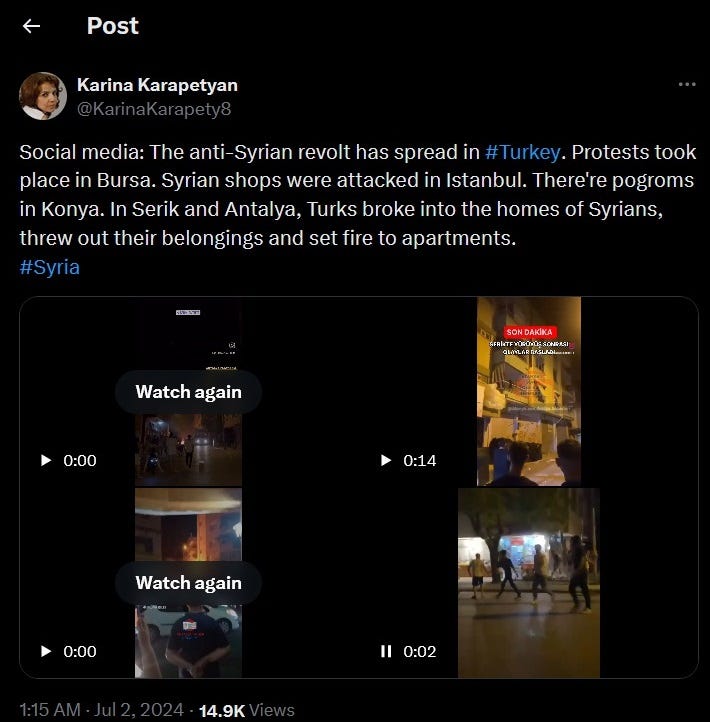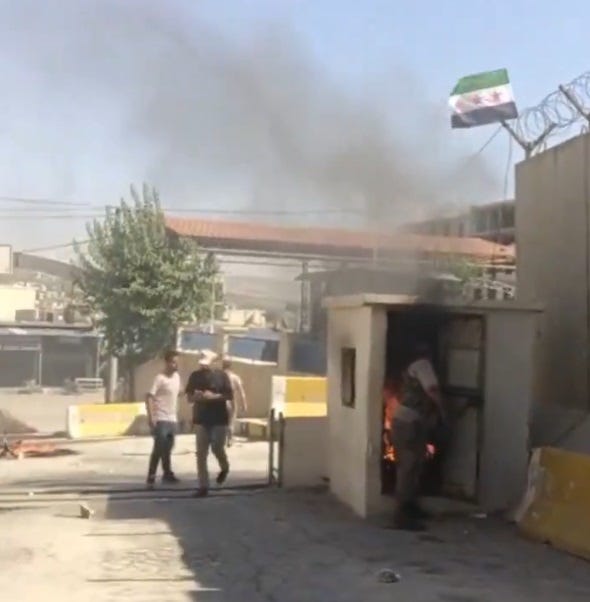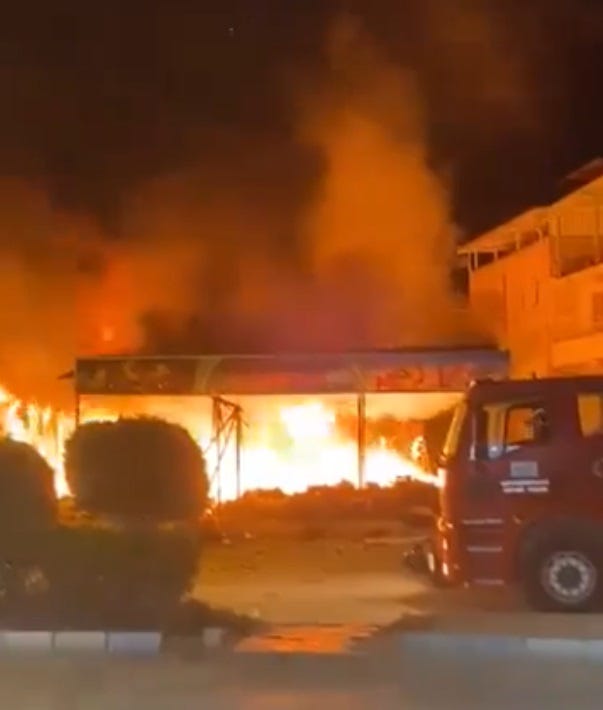Anti-refugee protests, primarily targeting Syrians, ripped through parts of Turkey after initially breaking out in the Kayseri Province in central Anatolia on June 31st. The protests were sparked after a Turkish national alleged that a minor-aged family member was sexually assaulted by a Syrian refugee, which led to the burning and vandalism of dozens of Syrian-owned small businesses from the south of the country up to one particular district in the city of Istanbul. Kayseri, home to some 80,000 Syrian migrants, was the epicenter of Monday night’s violence. Grim scenes of violence were also witnessed in Hatay, Gaziantep, Konya, and Bursa. Groups of young men ran through the streets, setting fires, throwing stones, bricks, and bottles, and beating people.
Turkey is temporarily home to some 3 million Syrian refugees, and tensions between ethnic Turks and Arab migrants have been simmering for years since the war in neighboring Syria began in 2011, with similar instances of anti-refugee violence in Turkey, though not necessarily to this scale. The riots led to approximately 474 arrests of those thought to have targeted Syrians in the last 48 hours.
Once images of the violence targeting Syrians reached their neighboring counterparts to the south via social media, anti-Turkey protests started to spread throughout northern regions of Syria that have long since been occupied by the Turkish Armed Forces (TAF). Syrian protesters, along with armed members of the Turkish-backed Free Syrian Army (TFSA), began attacking Turkish vehicles, setting multiple on fire and skirmishing with TAF soldiers. According to the Syrian Observatory for Human Rights, seven have been killed so far in clashes, most of which took place in the northwestern Syrian city of Afrin—a main hub for TAF in the region and arguably the most significant TAF toehold within the so-called buffer zone that they established in August 2019.
Turkish authorities have supposedly arrested the Syrian national accused of assaulting the minor, and say an investigation into the incident is ongoing. Turkey has since closed key border crossings with northern Syria, and high-level government figures rather cryptically blamed the cross-border tensions on provocateurs and “terrorists”—which, coming from them, could suggest anything from the domestic opposition and dissident Kurds to the movement of former Erdoğan ally-in-exile, Fethullah Gülen.
Interestingly, and perhaps having something itself to do with increasing ethnic tensions in Turkey, as well as between the TAF and their Arab counterparts within the TFSA—Turkish President Recep Tayyip Erdoğan says he has not ruled out talks with long-time rival in neighboring Syria, President Bashar al-Assad in order to restore normal diplomatic ties, which were severed by Ankara in 2011.
The Democratic Autonomous Administration of North and East Syria (AANES) has denounced such prospective diplomatic talks as a “conspiracy” against the Syrian people, which will not only serve to legitimize ongoing TAF presence in the north of the country but likely benefit the Assad government in a variety of ways as well.
This spring, there were protests in the neighboring Syrian rebel-held province of Idlib, largely under the control of Hayat Tahrir al-Sham (HTS)—a Salafi jihadi organization with its roots in Al Qaeda. The protests largely centered around HTS's treatment of prisoners in its facilities, and presumably the relatively abysmal conditions in which average Idlibis are currently living. However, it appears that HTS has since cracked down on the popular demonstrations and they have, for the time being, gone quiet.














Prayers for all. . .